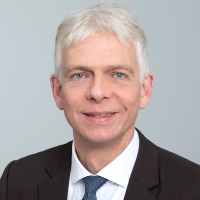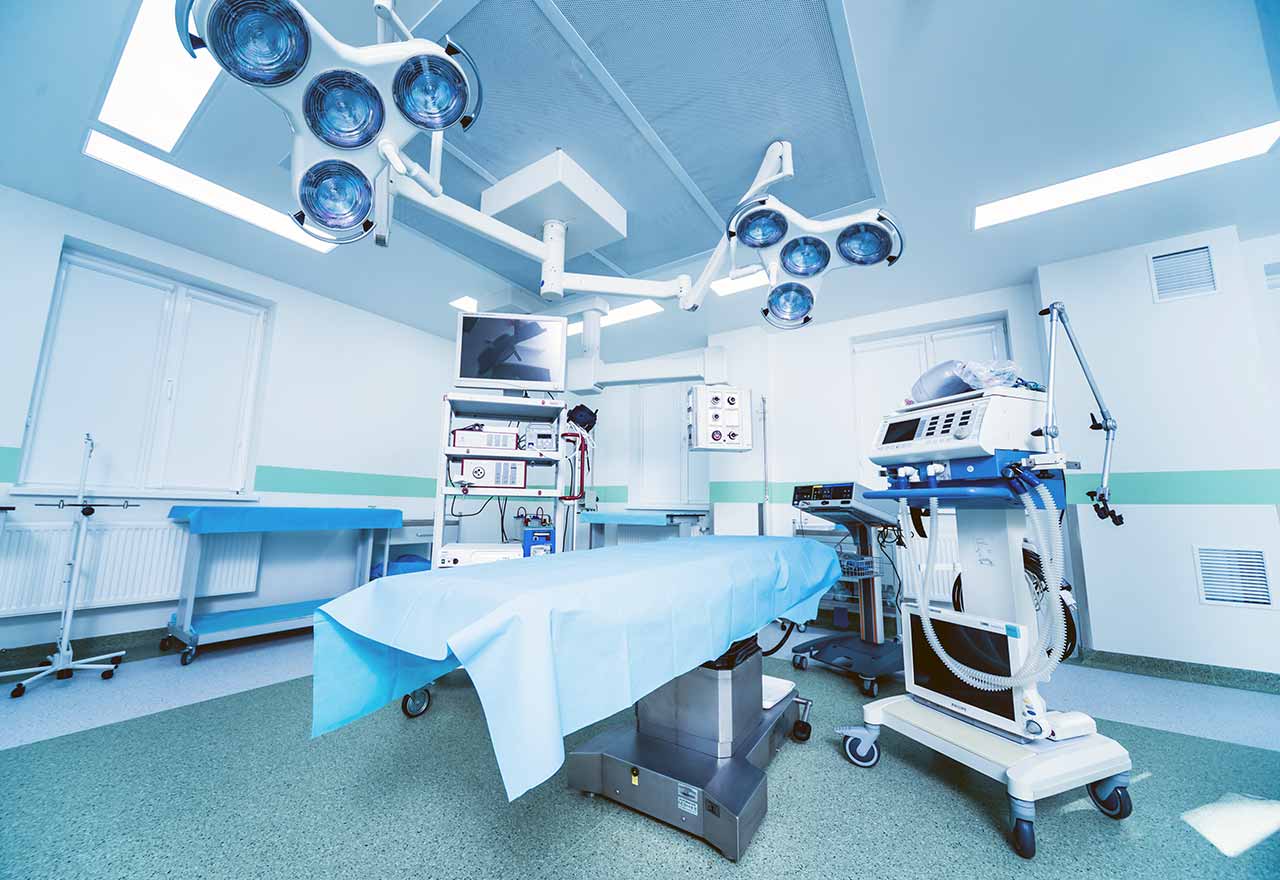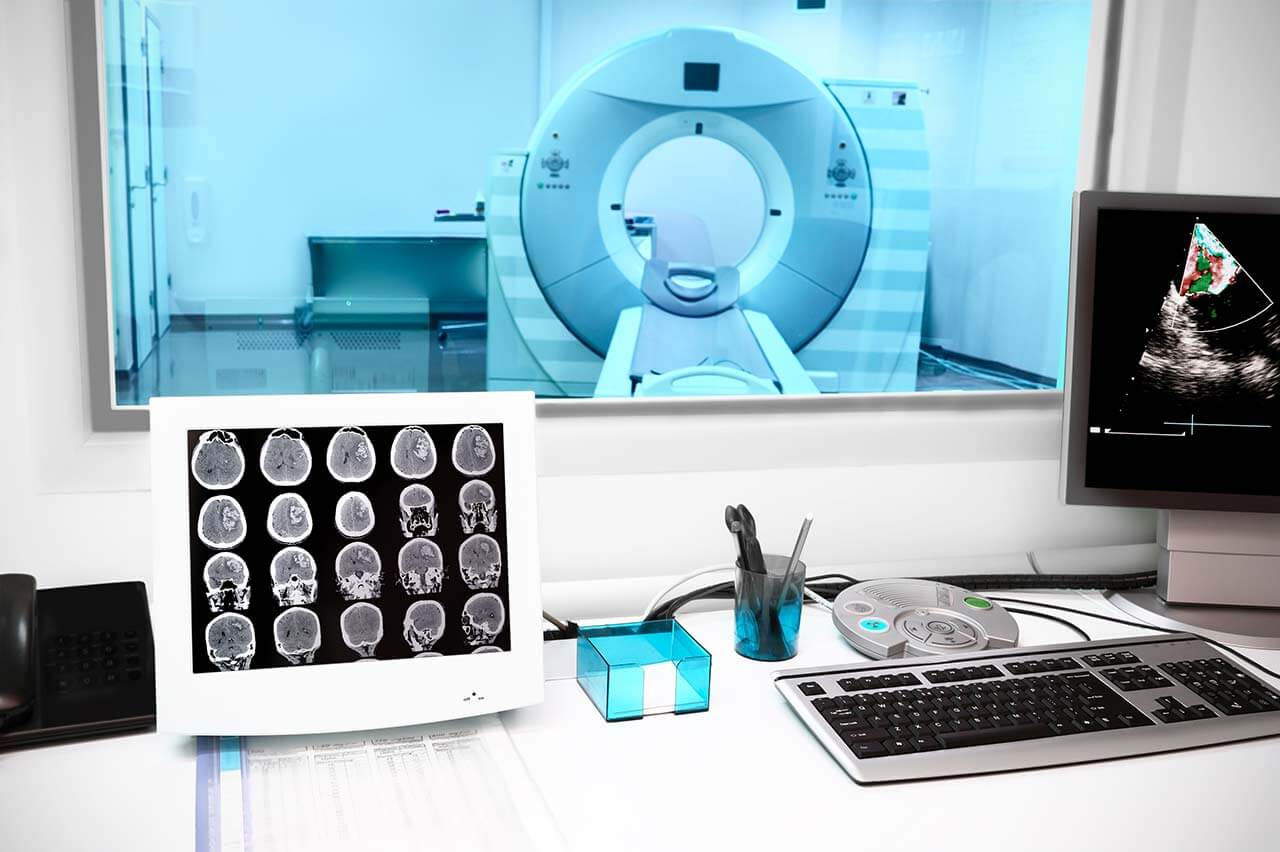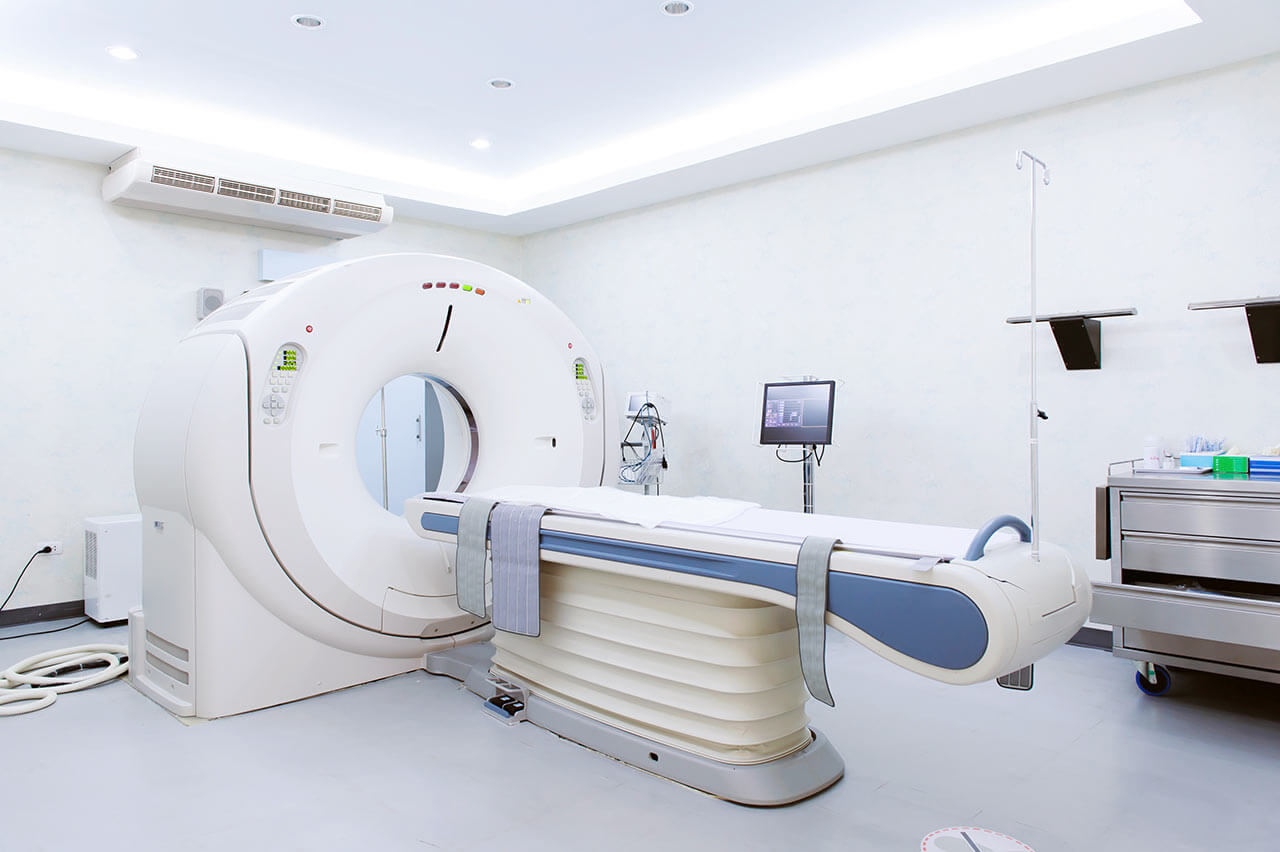
The program includes:
- Initial presentation in the clinic
- clinical history taking
- review of medical records
- physical examination
- neurophysiological examination
- laboratory tests:
- complete blood count
- inflammation indicators (CRP, ESR)
- abdominal ultrasound
- colonoscopy (on indication 1000 €)
- nursing services
- consultation of related specialists
- consultation of the chief physician and all leading experts
- development of individual treatment plan
- written statement
Required documents
- Medical records
- Anal sphincter ultrasound (if available)
- Pelvic MRI (if available)
Service
You may also book:
 BookingHealth Price from:
BookingHealth Price from:
About the department
According to the Focus magazine, the Department of General and Abdominal Surgery, Hernia Surgery, Hepatopancreatobiliary Surgery, Colorectal Surgery, Endocrine Surgery, Thoracic Surgery and Bariatric Surgery at the University Hospital Hamburg-Eppendorf is one of the best medical facilities in Germany for colorectal cancer treatment!
The department offers a full range of surgical treatment in its areas of specialization. The department successfully operates on patients with diseases of the digestive tract, hernias, pathologies of the liver and gallbladder, colon and rectum, thyroid gland and parathyroid glands, as well as diseases of the lungs, pleura, and chest wall. The department offers all currently available surgical procedures for the treatment of morbid obesity. Bariatric surgery is performed in the Center of Excellence certified by the German Society for General and Visceral Surgery (DGAV). It should be noted that the department has a reputation as one of the best medical institutions in Germany with enormous experience in the field of pancreatic and esophageal surgery and resection of periampullary tumors. Almost all surgical procedures in the department are performed using minimally invasive and robotic techniques. This treatment provides good results while minimizing postoperative recovery time and eliminating serious surgical risks. The department also provides innovative treatment of peritoneal carcinomatosis using HIPEC, hyperthermic intraperitoneal chemotherapy. The department performs more than 5,100 surgical procedures of varying complexity each year, most of them on an outpatient basis. The Head Physician of the department is Prof. Dr. med. Thilo Hackert.
The department's team of pancreatobiliary surgeons has unparalleled experience in pancreatic surgery. The medical facility is among the leaders in this field of surgery in Germany and abroad. The department performs surgery for pancreatic cancer, pancreatic cysts and pseudocysts, and pancreatitis, including rare forms. The specialists of the department perform more than 250 operations on the pancreas every year. The treatment regimen is developed with the participation of oncologists, gastroenterologists, radiologists, radiation therapists, and other experts. In the postoperative period, patients undergo the ERAS® rehabilitation program, which was specially developed for recovery after complex surgical procedures. The department has a quality certificate from the German Cancer Society (DKG) in the field of pancreatic cancer treatment.
The department successfully performs hernioplasty for all types of abdominal wall hernias: umbilical, inguinal, epigastric, parastomal, and incisional. Minimally invasive and laparoscopic techniques are mainly used for surgical treatment. For patients with recurrent hernias and large hernias, classic open surgery is recommended in certain cases. The surgeons most often perform mesh hernioplasty using TEP, TAPP, MILOS, and IPOM techniques. It should be noted that the specialists of the department are exceptionally qualified to perform surgical procedures for complex recurrences of abdominal wall hernias.
The department's team of surgeons specializes in the treatment of peritoneal carcinomatosis using an innovative method of hyperthermic intraperitoneal chemotherapy (HIPEC). The essence of the treatment is a combination of cytoreductive surgery with chemotherapy, which is administered directly during the surgery. Cytostatics act directly on the tumor during HIPEC, which increases the effectiveness of the therapy. In addition, the chemotherapy drugs are heated to 42-43°C, which ensures maximum destruction of cancer cells. Doctors can thus achieve the death of tumor cells that cannot be detected and removed during surgery. HIPEC treatment is highly effective, slows the progression of the cancer, and significantly increases the patient's life expectancy.
Endocrine surgery focuses on the surgical treatment of thyroid and parathyroid diseases, such as hyperthyroidism (thyroid hyperfunction), thyroid nodules, goiter, thyroid cancer, and parathyroid adenomas. The department's doctors operate on patients with endocrine pathologies using classical surgical techniques with an approach through a neck incision and perform advanced scarless interventions. The optimal type of surgery for the patient is determined depending on the specific diagnosis and the complexity of the clinical case. During thyroidectomy, hemithyroidectomy, and parathyroidectomy (surgical procedures to remove the thyroid and parathyroid glands), doctors use an advanced intraoperative monitoring system that helps avoid damage to the recurrent laryngeal nerve, which ensures proper functioning of the vocal cords. Endocrine surgeons work hand in hand with physicians from related medical specialties, such as endocrinologists, nuclear medicine specialists, radiologists, oncologists, and radiation therapists.
The department also offers colorectal surgery services. The main focus is on the treatment of colorectal cancer, which is performed in a specialized center certified by the German Cancer Society (DKG). The department is one of the few in Germany to perform colorectal cancer surgery using robotic surgical techniques. The da Vinci® robotic system allows for minimally invasive surgical treatment with invisible scars and the fastest possible recovery in the postoperative period. It should be noted that the department's colorectal surgeons successfully perform colorectal tumor resections near the anal sphincter muscles using the da Vinci® techniques. The therapeutic capabilities of the department in the field of colorectal surgery are complemented by the treatment of hemorrhoids, anal fistulas, anal fissures, fecal incontinence, and rectal prolapse.
The department's team of thoracic surgeons performs surgery for lung cancer and lung metastases, tracheal, mediastinal, diaphragmatic, and chest wall tumors, pulmonary emphysema, myasthenia gravis, pleurisy, interstitial lung disease, pneumothorax, and other pathologies. The department's specialists consult patients together with pulmonologists, oncologists, cardiac surgeons, plastic surgeons, and other experts. Surgery to treat thoracic diseases is performed in the department using video-assisted thoracoscopic surgery (VATS). Robotic-assisted thoracoscopic surgery (RATS) and laser surgical techniques are also successfully used here. In addition, the innovative surgical technique Flex-VATS is available in the department, which is used to operate on patients with particularly complex cases of pleural empyema.
Bariatric surgery completes the medical facility's range of services. The department is certified by the German Society for General and Visceral Surgery (DGAV) as a Center of Excellence for Bariatric Surgery. Gastric banding, gastric bypass, sleeve gastrectomy and biliopancreatic diversion with duodenal switch are successfully performed here. The above surgical procedures are performed using minimally invasive techniques, which allows the patient to recover from surgery in the shortest possible time. Bariatric surgery is the last-line treatment for patients with morbid obesity. The decision to perform it is made by a team of doctors consisting of bariatric surgeons, endocrinologists, therapists, and psychologists. The surgery is followed by comprehensive conservative treatment, including diet therapy, physical training, and psychotherapy. During the therapeutic process, the specialists of the department are guided by the recommendations of the German Obesity Society (DAG).
The department's main clinical activities include the following:
- General and abdominal surgery
- Surgery for stomach diseases
- Surgery for esophageal diseases
- Cytoreductive surgery combined with hyperthermic intraperitoneal chemotherapy (HIPEC) for peritoneal carcinomatosis
- Surgery for sarcomas
- Surgery for dialysis access formation
- Hernia surgery
- Surgery for umbilical hernias
- Surgery for inguinal hernias
- Surgery for epigastric hernias
- Surgery for parastomal hernias
- Surgery for incisional hernias
- Hepatopancreatobiliary surgery
- Surgery for pancreatic diseases
- Surgery for liver diseases
- Surgery for gallbladder and bile duct diseases
- Colorectal surgery
- Surgery for colorectal cancer
- Surgery for hemorrhoids
- Surgery for anal fissures
- Surgery for anal fistulas
- Surgery for fecal incontinence
- Surgery for rectal prolapse
- Endocrine surgery
- Surgery for thyroid diseases
- Surgery for parathyroid diseases
- Thoracic surgery
- Surgeries for lung cancer, lung metastases, tracheal, mediastinal, diaphragmatic, and chest wall tumors
- Surgery for pulmonary emphysema
- Surgery for myasthenia gravis
- Surgery for hyperhidrosis
- Surgery for malignant pleurisy
- Surgery for interstitial lung disease
- Chest wall reconstructive surgery
- Bariatric surgery
- Gastric banding
- Gastric bypass
- Sleeve gastrectomy
- Biliopancreatic diversion with duodenal switch
- Other surgical services
Curriculum vitae
Higher Education and Postgraduate Training
- 05.2000 Thesis defense in Cardiac Surgery, summa cum laude, Heidelberg University.
- 12.2000 Admission to practice medicine, Regional Council of Stuttgart.
- 07.2012 Extraordinary Professorship, Heidelberg University.
- 07.2008 Habilitation in Surgery, Heidelberg University.
- 06.1992 - 05.1999 Medical studies, Heidelberg University.
Professional Career
- Since 02.2023 Head Physician, Department of General and Abdominal Surgery, Hernia Surgery, Hepatopancreatobiliary Surgery, Colorectal Surgery, Endocrine Surgery, Thoracic Surgery and Bariatric Surgery, University Hospital Hamburg-Eppendorf.
- Since 2018 Managing Senior Physician, Department of General, Abdominal and Transplant Surgery, University Hospital Heidelberg.
- Since 01.2014 Head of the Center for Pancreatic Surgery, Department of General, Abdominal and Transplant Surgery, University Hospital Heidelberg.
- Since 01.2013 First Senior Physician, Department of General, Abdominal and Transplant Surgery, University Hospital Heidelberg.
- 12.2010 Board certification in Abdominal Surgery.
- 05.2007 Senior Physician, Department of General, Abdominal and Transplant Surgery, University Hospital Heidelberg.
- 08.2005 Board certification in General Surgery.
- 12.2000 - 04.2007 Assistant Physician, Department of General, Abdominal and Transplant Surgery, University Hospital Heidelberg.
- 06.1999 - 12.2000 Internship, Department of General, Abdominal and Transplant Surgery, University Hospital Heidelberg.
Memberships in Professional Societies
- German Society of Surgery (DGCH).
- German Society for General and Visceral Surgery (DGAV).
- German Pancreatic Club (Deutscher Pankreas Club).
- European Pancreatic Club.
- International Association of Pancreatology (IAP).
- European Society for Medical Oncology (ESMO).
Photo of the doctor: (c) Universitätsklinikum Hamburg-Eppendorf (UKE)
About hospital
According to the Focus magazine, the University Hospital Hamburg-Eppendorf is one of the top ten hospitals in Germany!
Since its foundation in 1889, the hospital has taken a leading position in the European medical arena, which it still holds today. A highly competent medical team of more than 15,300 employees takes care of the health of patients. Approximately 2,900 of them are physicians and researchers, and more than 3,400 work as nurses and therapists. The hospital has 1,738 beds for inpatient treatment, and many diagnostic and therapeutic services are provided on an outpatient basis. A solid foundation for successful clinical practice in the medical complex is formed by a combination of research achievements with state-of-the-art equipment and the highest professionalism of doctors. In addition, the hospital has a modern and extremely comfortable infrastructure. The most important value for every employee of the University Hospital Hamburg-Eppendorf is the health and well-being of every patient.
The medical facility was the first university hospital in Europe to implement an electronic system for storing patient medical reports. As a result, all diagnostic and treatment protocols are stored electronically. In 2011, the hospital was certified as the first fully digital hospital in Europe.
The hospital represents all areas of modern medicine. The doctors of the healthcare facility have a wealth of theoretical knowledge and vast clinical experience, which allows them to easily cope with the treatment of both common and extremely rare, complex clinical cases. About 550,000 patients are treated here each year, over 450,000 of whom receive outpatient medical care.
An important part of the work of the University Hospital Hamburg-Eppendorf is research activities aimed at developing innovative diagnostic and treatment methods. The main areas of research of the hospital include neurobiology, oncology, cardiovascular research, and research on infectious and inflammatory diseases. Special attention is also given to research in molecular imaging and skeletal biology.
The hospital is distinguished by its first-class level of medical care, which is confirmed by numerous quality certificates of European and international standards: DIN EN IS0 9001 certificate, certificates of the German Cancer Society (DKG) in the treatment of breast cancer, colon cancer, gynecological cancer, prostate cancer, and other oncological diseases, certificate of the German Cardiac Society (DGK) in the treatment of acute coronary syndrome, certificate of the German Spine Society (DWG), and others.
Photo: (с) depositphotos
Accommodation in hospital
Patients rooms
The patients of the University Hospital Hamburg-Eppendorf stay in comfortable single and double bright rooms with a modern design. Each patient room has an ensuite bathroom with a shower and a toilet. The standard patient room furnishings include an automatically adjustable bed with an orthopedic mattress, a bedside table, a wardrobe, a table and chairs for receiving visitors, a telephone, a radio, and a TV. Wi-Fi access is available in patient rooms and throughout the hospital.
If desired, patients can stay in single enhanced-comfort rooms. These rooms are more spacious and are equipped with upholstered furniture, a safe, and a mini-fridge.
Meals and Menus
The hospital offers three meals a day: breakfast, lunch, and dinner. Breakfast and dinner are served in the form of buffets, and for lunch you can choose from several set menus – in total, more than 20 dishes are served for lunch, including vegetarian ones.
If, for some reason, you cannot eat all of the foods, you will be offered an individual menu. Please inform the medical staff about your dietary preferences prior to the treatment.
Further details
Standard rooms include:
![]() Toilet
Toilet
![]() Shower
Shower
![]() Wi-Fi
Wi-Fi
![]() TV
TV
Religion
Religious services are available upon request.
Accompanying person
During the inpatient program, an accompanying person may stay with you in a patient room or hotel of your choice.
Hospital accommodation
During the outpatient program, you may stay in a hotel at the hospital.
Hotel
During the outpatient program, you may stay in a hotel of your choice. Managers will help you choose the most suitable options.
The hospital offers a full range of laboratory tests (general, hormonal, tests for infections, antibodies, tumor markers, etc.), genetic tests, various modifications of ultrasound scans, CT scans, MRI and PET / CT, angiography, myelography, biopsy and other examinations. Treatment with medications, endoscopic and robotic operations, stereotaxic interventions is carried out here, modern types of radiation therapy are also used. The hospital offers patients all the necessary therapeutic techniques.
- Coiling and clipping of aneurysms of different localizations
- Transjugular intrahepatic portosystemic shunting in patients with portal hypertension
- Minimally invasive surgeries (da Vinci)
- Removal and reconstruction of mammary glands
- Hyperthermic intraperitoneal chemotherapy (HIPEC)
These are arteriovenous malformations and angiomas, vascular aneurysms, pathologies of the mammary glands, pelvic organ prolapse, urinary incontinence, malignant tumors of various localizations (area of special attention is treatment of intestinal cancer), pathologies of liver and pancreas, cataracts and rare ophthalmic pathologies (aphakia, aniridia ), infertility and other diseases.
- Interventional neuroradiology
- Mammology
- Oncology
- Gastroenterology
- Surgery
Over 2,900 highly qualified physicians and researchers work at the hospital.





